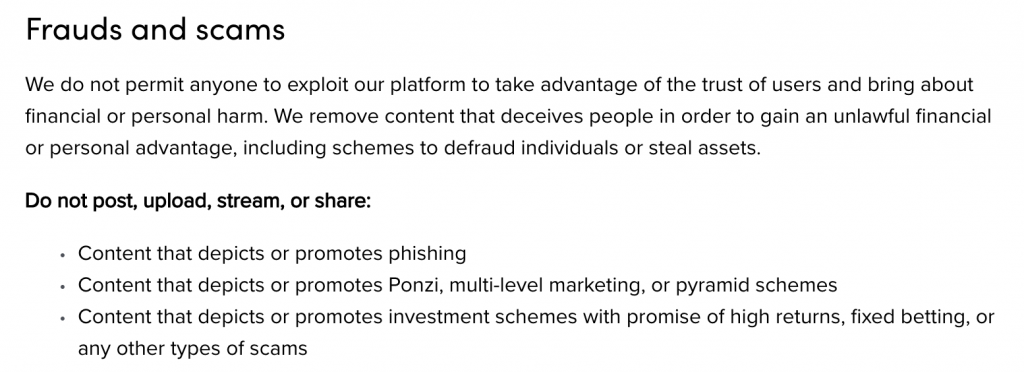A TikTok advertisement that promised quick and easy money cost Ng Cheng Yu almost $1,000.
The 21-year-old chanced upon the TikTok ad on 26 June this year. The ad promised high returns to participants who’re able to complete low-effort tasks such as adding a product in their carts on e-commerce apps and showing a screenshot as proof.
There’s a catch: instead of paying for the product in the app itself, participants are asked to transfer the payment to another bank account. They’re then assured that they would receive their money back with a 10 per cent commission.
Cheng Yu was initially sceptical about the ad. As a Shopee affiliate marketer himself, he’s aware that such work usually involves generating custom URLs to promote products on the e-commerce platform. For every successful sale made through his URL, he would receive a commission. Most importantly, Shopee would usually notify him of his remuneration details via email.
However, his curiosity got the better of him. He clicked on the link in the TikTok ad and was led to a WhatsApp chat with about 10 people who seemed to know one another very well. He suspected that they were likely from the same team who put up the ad.
“It sounded shady and I knew it was a red flag, but I didn’t know it would be an outright scam,” Cheng Yu said.
Next, he was instructed to search for a L’occitane Hair Conditioner Refill on Shopee, add it to his shopping cart and take a screenshot of it. Then, he was told to transfer the payment to a certain Erica.
The refill cost $49. After he “paid” for it, he was soon refunded $53.90 with a 10 per cent commission – as promised in the ad.
He went on to help “buy” the second item, which costs $189. Again, he received $207.90 in return for his effort.
By then, he was convinced that he could earn a quick buck from this scheme. In his words, his curiosity has turned into “greed”.
The scammers then promoted him to the “VIP” status for his supposed efficiency, and increased the commission to 20 per cent for each product he helped them “purchase”.
As such, Cheng Yu forked out $289 for the third transaction. But this time, he didn’t get a refund due to an alleged system error.
Unlike ordinary participants, Cheng Yu was told that “VIPs” were required to carry out three consecutive transactions before they could receive their money back. Eager to get back his cash, he hesitantly carried out the fourth transaction, which set him back another $699.
He wouldn’t be getting back his money this time either, as there’s another “system error”.
“I was quite confused about what was going on. I was taken aback because [the amount] was definitely a significant one,” Cheng Yu recalled.
After realising that he got scammed, he reported the incident to the police. They notified him that he was just one of the many young Singaporeans who’ve fallen prey to the “scam-demic”.
In an effort to warn the TikTok community, Cheng Yu has shared his story through a two-part video series on his TikTok account.
@cheng.yu Reply to @sdkskskv Exactly How I Got Scammed on TikTok #Part1 #TikTokSG
♬ Bite U (YoliBabby Remix) – Shiloh Dynasty/Yolibabby
Video Credit: Ng Cheng Yu
Cheng Yu said a TikTok moderator has reached out to him about his encounter, and the scam ad in question was removed. TikTok has made clear in its community guidelines that it will “remove content that deceives people in order to gain an unlawful financial or personal advantage”.

Since Cheng Yu posted his videos, other TikTok users have come forward to share their plight.
Jeremy Ng, 19, was one of them. Similarly, he transferred money to a bank account for products that he didn’t buy to earn a commission. By the time he realised he was scammed, he’d lost $4,000.
He said: “When I was scammed I just felt lost, I felt stupid for giving in even though it was so easy to see that it was a scam.”
“I gave in because I was greedy… there were a lot of things that I could have looked at instead of just going in greedy and not paying attention,” Jeremy continued.
“I’m glad I learnt a lesson, a very expensive lesson. At my age it’s prime time to learn [from my mistakes].”
Like Cheng Yu, Jeremy also reported the incident to the police in June this year. Investigations are ongoing.
Ms Stephanie Huang, 35, a National Crime Prevention Council (NCPC) anti-scam hotline officer, stated that she saw an obvious rise in such scams since the beginning of the pandemic.
To counter this surge, the Singapore Police Force’s Anti-Scam Centre (ASC) and some banks work with victims to withhold money from scammers.
“Usually I will get victims to provide the scammer’s bank account as well as their own. We liaise with the police to see if they can recover their money,” she said.
Most importantly, people should stay informed by following the news and anti-crime advisory regularly, said Cheng Yu.
“Google whatever you can find and there’s probably some information out on the internet. Save yourself that money,” he said.
Under the Penal Code, the penalty for cheating is a fine and/or a jail term of up to three years.
If you have information on such scams, please call the police at 1800-255-0000, or submit it online at www.police.gov.sg/iwitness. For more information on scams, visit www.scamalert.sg or call the anti-scam hotline at 1800-722-6688.
